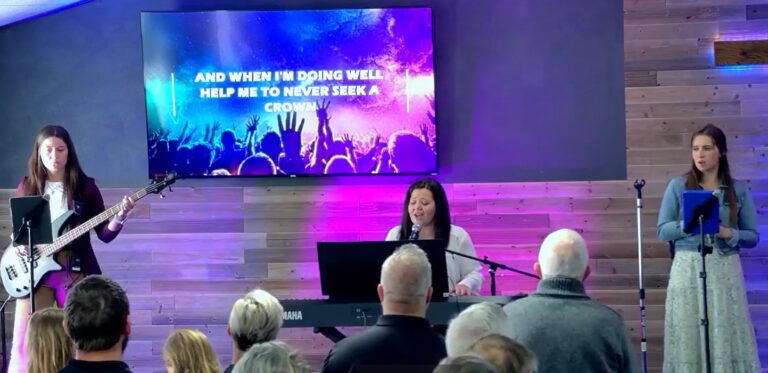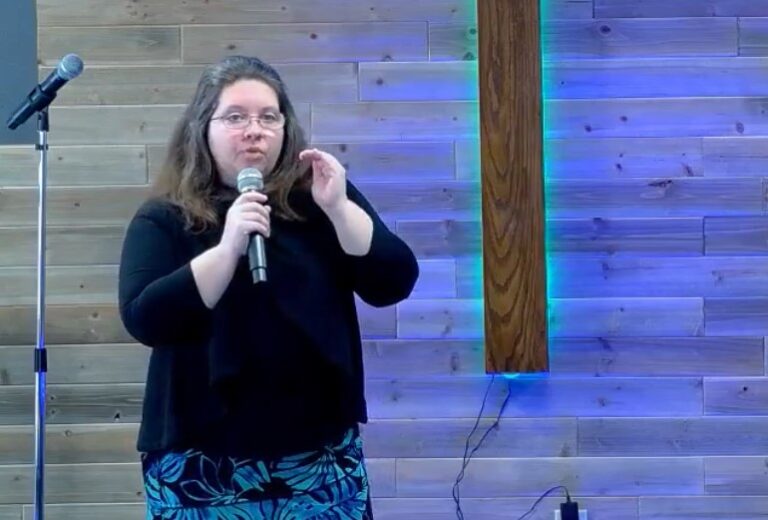Welcome to our online youth group lesson for this week. Sorry for the last-minute canceling of the in-person gathering. Thanks for understanding. Catch up on previous lessons by clicking here.
Please keep the extended Jordan family in prayer ahead of Friday’s funeral service for Charlie Jordan. Also, please pray for Paige as she is feeling pretty cruddy and Michelle, who is still dealing with constant pain and nausea.
Today’s lesson focuses on one of Jesus’ parables from Matthew 20. First, for context, let’s start by looking at Matthew 19:27-30 (NIV):
27 Peter answered Him, “We have left everything to follow you! What then will there be for us?”
28 Jesus said to them, “Truly I tell you, at the renewal of all things, when the Son of Man sits on his glorious throne, you who have followed me will also sit on twelve thrones, judging the twelve tribes of Israel. 29 And everyone who has left houses or brothers or sisters or father or mother or wife or children or fields for my sake will receive a hundred times as much and will inherit eternal life. 30 But many who are first will be last, and many who are last will be first.”
It helps to keep that interaction in mind heading into the parable of the vineyard workers as Jesus tries to teach his disciples about God’s concept of fairness in relation to the Kingdom of Heaven. Specifically from Matthew 20:1-16 (NIV):
1 “For the kingdom of heaven is like a landowner who went out early in the morning to hire workers for his vineyard. 2 He agreed to pay them a denarius[a] for the day and sent them into his vineyard.
3 “About nine in the morning he went out and saw others standing in the marketplace doing nothing. 4 He told them, ‘You also go and work in my vineyard, and I will pay you whatever is right.’ 5 So they went.
“He went out again about noon and about three in the afternoon and did the same thing. 6 About five in the afternoon he went out and found still others standing around. He asked them, ‘Why have you been standing here all day long doing nothing?’
7 “‘Because no one has hired us,’ they answered.
“He said to them, ‘You also go and work in my vineyard.’
8 “When evening came, the owner of the vineyard said to his foreman, ‘Call the workers and pay them their wages, beginning with the last ones hired and going on to the first.’
9 “The workers who were hired about five in the afternoon came and each received a denarius. 10 So when those came who were hired first, they expected to receive more. But each one of them also received a denarius. 11 When they received it, they began to grumble against the landowner. 12 ‘These who were hired last worked only one hour,’ they said, ‘and you have made them equal to us who have borne the burden of the work and the heat of the day.’
13 “But he answered one of them, ‘I am not being unfair to you, friend. Didn’t you agree to work for a denarius? 14 Take your pay and go. I want to give the one who was hired last the same as I gave you. 15 Don’t I have the right to do what I want with my own money? Or are you envious because I am generous?’
16 “So the last will be first, and the first will be last.”
Breaking it down, the essence of the story is that a vineyard owner hires workers at the start of the day (6 a.m.) and agrees to pay them a denarius for a day’s work. That is suitable to them. Throughout the day, the owner hires additional workers and at the end of the day, winds up paying them all a denarius — from those that only worked one hour to those who put in a full 12-hour day. It is easy to understand the grumbling of the workers in verses 11-12. However, Jesus is teaching a whole new concept of fairness — at least in terms of believers who wind up in the Kingdom of Heaven.
Consider the commentary provided by Allen Parr about this parable in the following video:
Among Allen Parr’s observations near the end of the video:
- God’s blessings aren’t contingent on our work, but His goodness.
- Never look down on the “5 p.m. workers.”
- When we get our eyes off our own blessings and start coveting what other people have, resentment toward God can begin to sink in.
- Don’t always look at what you can get, look for what you can give.
- Be thankful God has given you more time to work for Him.
What are your thoughts on this parable? Are there times in life where you question God’s fairness? Does this parable and “conversation” help put that in a new light?












